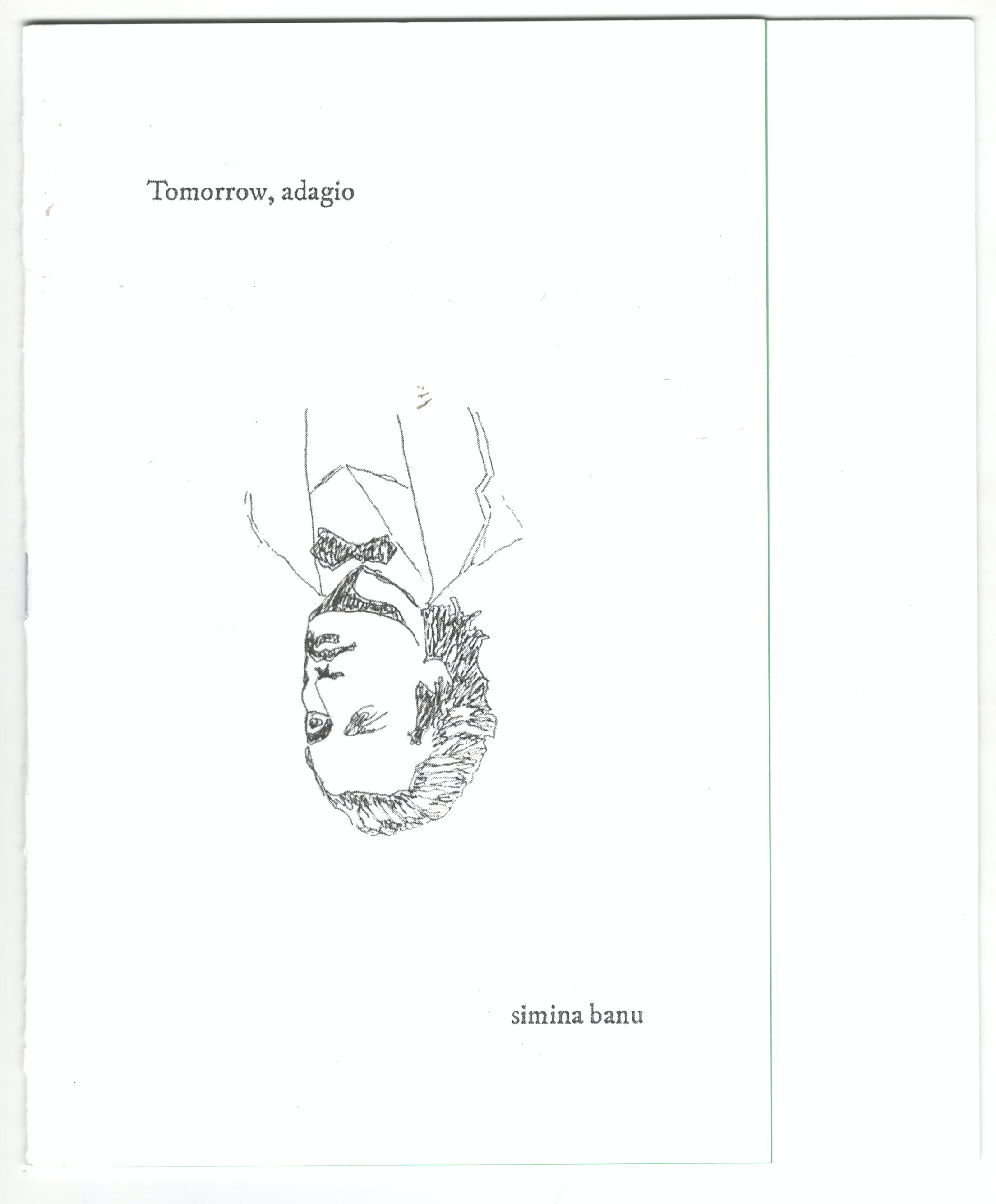 Tomorrow, adagio
Tomorrow, adagio
Chapbook, Simina Banu, 12 pgs, above/ground press, abovegroundpress.blogspot.com, $5
Banu, or her designer, has appropriately flipped a scribbled bust of 19-century Romanian poet Mihai Eminescu on its head. “The pieces in this chapbook are phonetic, visual and (at times) literal ‘translations’ of the following poems,” reads her paratext, listing nine of Eminescu’s originals. Tomorrow, adagio calls into question the purpose of translation — a process whose limitations have plagued and inspired writers as long as there’s been more than one spoken tongue. Banu’s subtitle pulls no punches in its loose approach to translation: these are original poems, “inspired by the work of Mihai Eminescu.”
I love the concept, but gestural translation gets away from me. Without an understanding of the Romanian originals, one cannot know when the text is phonetic, visual, or literal translation, or perhaps some combination. The experience can be hard to follow: “A Russian yes, fierce data,” reads “From the strainer,” “O native land: my, my, / Some pot, to cook in, smoke, / bang, riot.” The title poem, “Tomorrow, adagio,” is similarly irreverent: “Tomorrow clips toes onto the rice,” it reads, “evolution having decided we don’t need that filth. / I drink it anyway, wear old jeans and don’t / order the cabbage rolls.” I appreciate the exercise, and am interested in Banu’s exploring the bounds and motivations of literary translation — but on the ground, rhyme and reason goes a long way. Without that, I fear one line lacks any impact on the one that comes after it.
